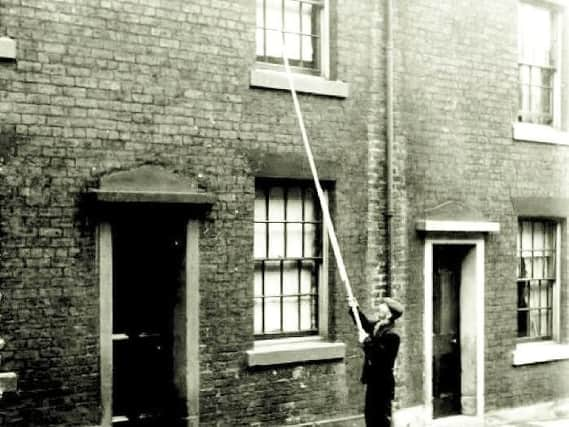Preston 'knocker upper' knocked down and killed


The occupation of ‘Knocker Up’ was an essential one in the days when cotton mills thrived throughout Lancashire. The duty of waking up the workers falling on the shoulders of an individual who carried a long pole with wire attachments that he rattled on bedroom windows at the crack of dawn.
One person still employed as a knocker up in Preston at the dawn of the 20th century was Peter Griffiths a sprightly 73 year old. Unfortunately, the tragic events of the second Saturday in August 1900 would bring his career and life to an abrupt end.
Advertisement
Hide AdAdvertisement
Hide AdOn the following Tuesday at the Preston Borough Police Court a soldier of the Loyal North Lancashire Regt. named as Frederick Hurst, aged 36, was charged with causing his death by violence. Prosecutor Mr. P.H. Edelston stated that at 2 o’clock on the Saturday afternoon Mr. Griffiths, who resided with his niece in Houghton Square, had left home to collect the money due to him for knocking people up that week.
The niece Margaret Ann Caffrey told the court he was brought home in a cab at 9 o’clock that night evidently in great pain.
Despite vomiting during the night he got up at 4 o’clock on the Sunday morning to perform his knocker up duties.
However, he returned within a quarter of an hour doubled up in pain. Dr. Garner was then called out and ordered his removal to the Infirmary where he died shortly before midnight.
Advertisement
Hide AdAdvertisement
Hide AdShe then stated that her Uncle told her he was in the yard of the public house when a soldier asked him for a match which he gave him. The soldier then asking for a penny, whereupon he replied that he had no money, at which point the soldier had assaulted him.
Various witnesses were called who had observed the incident outside the Port Admiral Inn on Lancaster Road that Saturday evening including William Whitehead who stated – ‘I saw the soldier seize the old man by the bottom of the trouser legs, and throw him to the ground.
He fell on his back, and the prisoner then jumped violently with his knees on his stomach.
He then held him by the throat and shook him. He was pulled off by a bystander and walked off towards the market. He appeared to have had some drink and was wearing a military uniform with a red coat with dark blue facings.
Advertisement
Hide AdAdvertisement
Hide AdDr. Helme, a house surgeon at the Preston Royal Infirmary, then testified that he had attended to Mr. Griffiths, but despite treatment he gradually became worse.
At the post mortem that followed he found signs of recent peritonitis and observed the intestines were ruptured, consistent with being knelt upon in a violent manner.
The Bench then adjourned proceedings until after the Inquest, refusing the prisoner bail.
Following the Inquest, where its was recorded that Griffiths met a violent end, the magistrates resumed their hearing and concluded by sending the accused to the next Lancaster Assizes, charged with Manslaughter.
Advertisement
Hide AdAdvertisement
Hide AdThe Assizes were held in early November before Mr. Justice Bucknill. Peter Anderton, a local painter, was amongst those called and he testified that he saw the prisoner and the old man come tumbling out of the Port Admiral yard both the worse for drink, the soldier falling with both knees on the victim’s stomach.
According to him, the soldier was getting up when the old man lifted his foot to kick the accused who reacted by dragging the man along the ground. In his opinion the fall had been quite accidental.
Mr. McKeever, for the defence, claimed the prosecution had failed to prove he was feloniously killed and that it was an unfortunate accident.
The jury, after a short deliberation, returned with a not guilty verdict and he was accordingly acquitted.